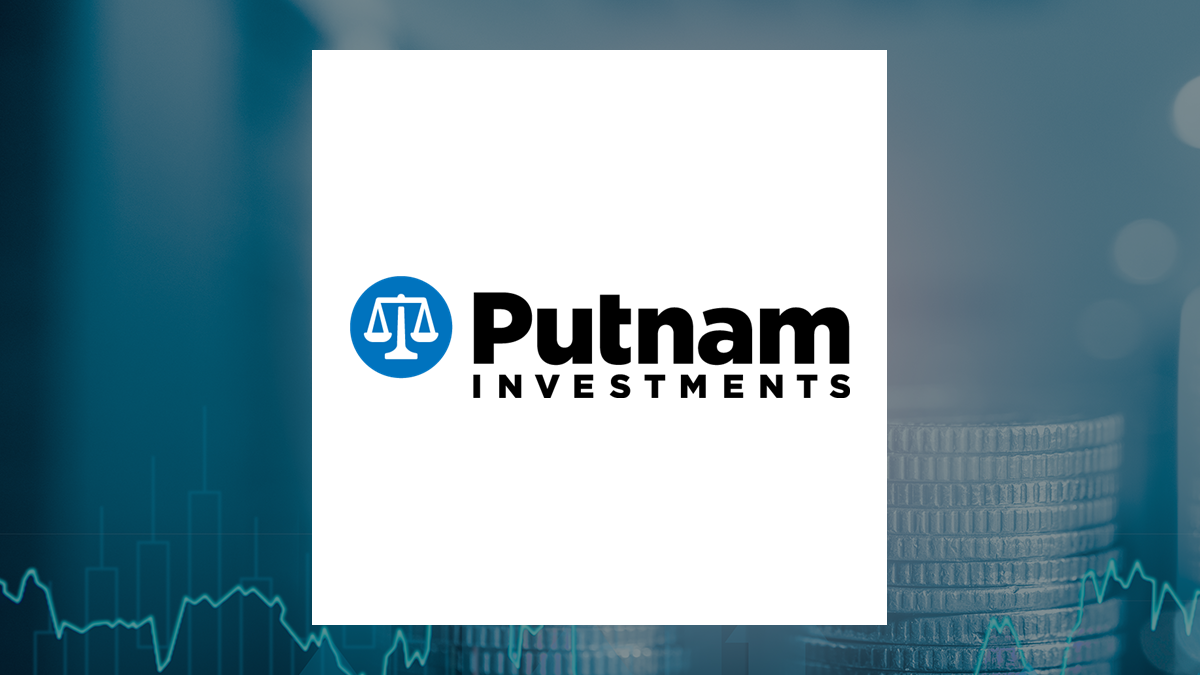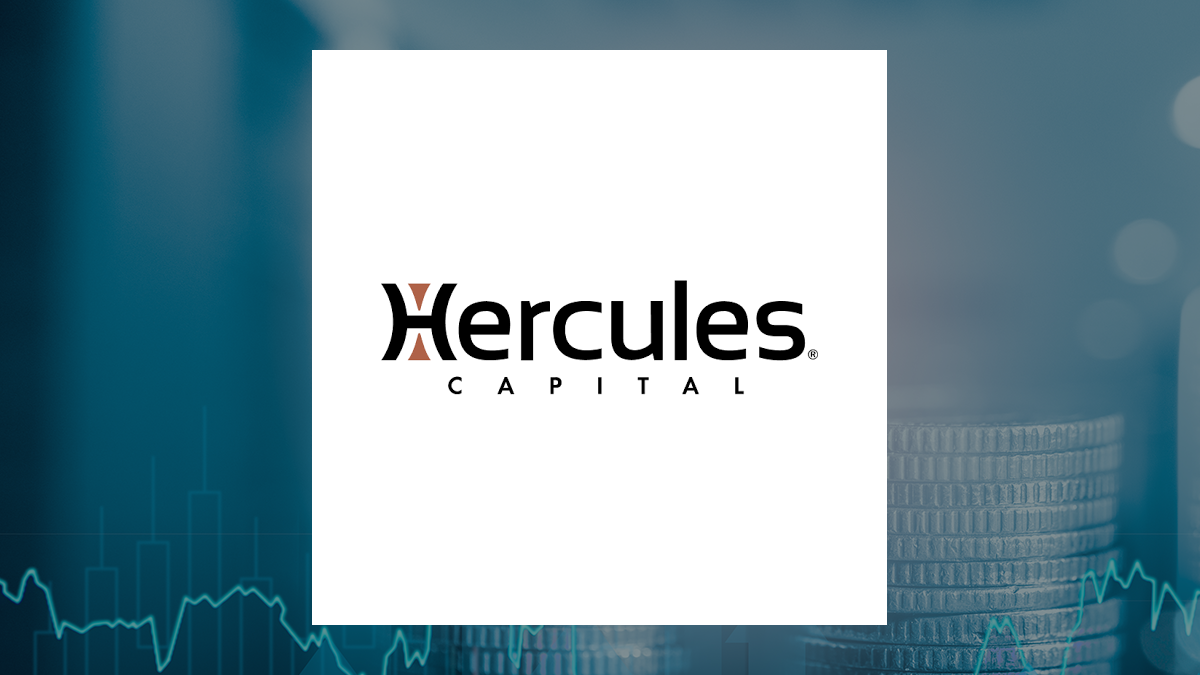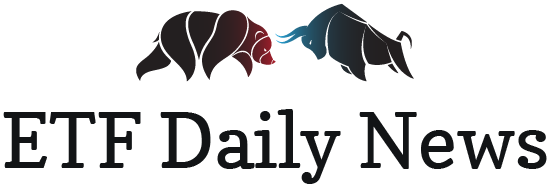Putnam Municipal Opportunities Trust (NYSE:PMO – Get Free Report) and Hercules Capital (NYSE:HTGC – Get Free Report) are both finance companies, but which is the better stock? We will compare the two businesses based on the strength of their institutional ownership, earnings, risk, profitability, dividends, analyst recommendations and valuation.
Institutional and Insider Ownership
20.4% of Putnam Municipal Opportunities Trust shares are held by institutional investors. Comparatively, 19.7% of Hercules Capital shares are held by institutional investors. 0.0% of Putnam Municipal Opportunities Trust shares are held by insiders. Comparatively, 1.9% of Hercules Capital shares are held by insiders. Strong institutional ownership is an indication that endowments, hedge funds and large money managers believe a company is poised for long-term growth.
Profitability
This table compares Putnam Municipal Opportunities Trust and Hercules Capital’s net margins, return on equity and return on assets.
| Net Margins | Return on Equity | Return on Assets | |
| Putnam Municipal Opportunities Trust | N/A | N/A | N/A |
| Hercules Capital | 69.98% | 18.35% | 9.29% |
Analyst Recommendations
| Sell Ratings | Hold Ratings | Buy Ratings | Strong Buy Ratings | Rating Score | |
| Putnam Municipal Opportunities Trust | 0 | 0 | 0 | 0 | N/A |
| Hercules Capital | 0 | 4 | 3 | 0 | 2.43 |
Hercules Capital has a consensus target price of $18.56, suggesting a potential downside of 5.15%. Given Hercules Capital’s higher possible upside, analysts clearly believe Hercules Capital is more favorable than Putnam Municipal Opportunities Trust.
Risk & Volatility
Putnam Municipal Opportunities Trust has a beta of 0.61, meaning that its share price is 39% less volatile than the S&P 500. Comparatively, Hercules Capital has a beta of 1.36, meaning that its share price is 36% more volatile than the S&P 500.
Dividends
Putnam Municipal Opportunities Trust pays an annual dividend of $0.42 per share and has a dividend yield of 4.1%. Hercules Capital pays an annual dividend of $1.60 per share and has a dividend yield of 8.2%. Hercules Capital pays out 72.7% of its earnings in the form of a dividend.
Earnings and Valuation
This table compares Putnam Municipal Opportunities Trust and Hercules Capital’s gross revenue, earnings per share and valuation.
| Gross Revenue | Price/Sales Ratio | Net Income | Earnings Per Share | Price/Earnings Ratio | |
| Putnam Municipal Opportunities Trust | N/A | N/A | N/A | N/A | N/A |
| Hercules Capital | $460.67 million | 6.89 | $337.48 million | $2.20 | 8.90 |
Hercules Capital has higher revenue and earnings than Putnam Municipal Opportunities Trust.
Summary
Hercules Capital beats Putnam Municipal Opportunities Trust on 9 of the 11 factors compared between the two stocks.
About Putnam Municipal Opportunities Trust
 Putnam Municipal Opportunities Trust is a closed ended fixed income mutual fund launched and managed by Putnam Investment Management, LLC. The fund is co-managed by Putnam Investments Limited. It invests in fixed income markets of United States. The fund invests in companies operating across healthcare, utilities, transportation, water and sewer, and housing sectors. Putnam Municipal Opportunities Trust was formed in 1993 and is domiciled in United States.
Putnam Municipal Opportunities Trust is a closed ended fixed income mutual fund launched and managed by Putnam Investment Management, LLC. The fund is co-managed by Putnam Investments Limited. It invests in fixed income markets of United States. The fund invests in companies operating across healthcare, utilities, transportation, water and sewer, and housing sectors. Putnam Municipal Opportunities Trust was formed in 1993 and is domiciled in United States.
About Hercules Capital
 Hercules Capital, Inc. is a business development company. The firm specializing in providing venture debt, debt, senior secured loans, and growth capital to privately held venture capital-backed companies at all stages of development from startups to expansion stage including select publicly listed companies and select special opportunity lower middle market companies that require additional capital to fund acquisitions, recapitalizations and refinancing and established-stage companies. The firm provides growth capital financing solutions for capital extension; management buy-out and corporate spin-out financing solutions; company, asset specific, or intellectual property acquisition financing; convertible, subordinated and/or mezzanine loans; domestic and international corporate expansion; vendor financing; revenue acceleration by sales and marketing development, and manufacturing expansion. It provides asset-based financing with a focus on cash flow; accounts receivable facilities; equipment loans or leases; equipment acquisition; facilities build-out and/or expansion; working capital revolving lines of credit; inventory. The firm also provides bridge financing to IPO or mergers and acquisitions or technology acquisition; dividend recapitalizations and other sources of investor liquidity; cash flow financing to protect against share price volatility; competitor acquisition; pre-IPO financing for extra cash on the balance sheet; public company financing to continue asset growth and production capacity; short-term bridge financing; and strategic and intellectual property acquisition financings. It also focuses on customized financing solutions, emerging growth, mid venture, and late venture financing. The firm invests primarily in structured debt with warrants and, to a lesser extent, in senior debt and equity investments. The firm generally seeks to invest in companies that have been operating for at least six to 12 months prior to the date of their investment. It prefers to invest in technology, SaaS Finance, energy technology, sustainable and renewable technology, and life sciences. Within technology the firm focuses on advanced specialty materials and chemicals; communication and networking, consumer and business products; consumer products and services, digital media and consumer internet; electronics and computer hardware; enterprise software and services; gaming; healthcare services; information services; business services; media, content and information; mobile; resource management; security software; semiconductors; semiconductors and hardware; and software sector. Within energy technology, it invests in agriculture; clean technology; energy and renewable technology, fuels, and power technology; geothermal; smart grid and energy efficiency and monitoring technologies; solar; and wind. Within life sciences, the firm invests in biopharmaceuticals; biotechnology tools; diagnostics; drug discovery, drug platform, development, and delivery; medical devices and equipment; surgical devices; therapeutics; pharma services; and specialty pharmaceuticals. Within sustainable and renewables, it invests in Vehicle Technology, Energy Generation and Storage, Ag Technology, Advanced Materials, and Industry 4.0. It also invests in educational services. The firm invests primarily in United States based companies and considers investment in the West Coast, Mid-Atlantic regions, Southeast and Midwest, particularly in the areas of software, biotech, and information services. The firm prefers to invest between $5 million and $200 million in equity per transactions. It invests generally between $1 million and $40 million in companies focused primarily on business services, communications, electronics, hardware, and healthcare services. The firm invests primarily in private companies but also have investments in public companies. For equity investments, the firm seeks to represent a controlling interest in its portfolio companies which may exceed 25% of the voting securities of such companies. The firm seeks to invest a limited portion of its assets in equipment-based loans to early-stage prospective portfolio companies. These loans are generally for amounts up to $3 million but may be up to $15 million for certain energy technology venture investments. The firm allows certain debt investments have the right to convert a portion of the debt investment into equity. It also co-invests with other private equity firms. The firm seeks to exit its investments through initial public offering, a private sale of equity interest to a third party, a merger or an acquisition of the company or a purchase of the equity position by the company or one of its stockholders. The firm has structured debt with warrants which typically have maturities of between two and seven years with an average of three years; senior debt with an investment horizon of less than three years; equipment loans with an investment horizon ranging from three to four years; and equity related securities with an investment horizon ranging from three to seven years. The firm prefers to invest through its balance sheet capital. The firm formerly known as Hercules Technology Growth Capital, Inc. Hercules Capital, Inc. was founded in December 2003 and is based in San Mateo, California with additional offices in North America and Europe.
Hercules Capital, Inc. is a business development company. The firm specializing in providing venture debt, debt, senior secured loans, and growth capital to privately held venture capital-backed companies at all stages of development from startups to expansion stage including select publicly listed companies and select special opportunity lower middle market companies that require additional capital to fund acquisitions, recapitalizations and refinancing and established-stage companies. The firm provides growth capital financing solutions for capital extension; management buy-out and corporate spin-out financing solutions; company, asset specific, or intellectual property acquisition financing; convertible, subordinated and/or mezzanine loans; domestic and international corporate expansion; vendor financing; revenue acceleration by sales and marketing development, and manufacturing expansion. It provides asset-based financing with a focus on cash flow; accounts receivable facilities; equipment loans or leases; equipment acquisition; facilities build-out and/or expansion; working capital revolving lines of credit; inventory. The firm also provides bridge financing to IPO or mergers and acquisitions or technology acquisition; dividend recapitalizations and other sources of investor liquidity; cash flow financing to protect against share price volatility; competitor acquisition; pre-IPO financing for extra cash on the balance sheet; public company financing to continue asset growth and production capacity; short-term bridge financing; and strategic and intellectual property acquisition financings. It also focuses on customized financing solutions, emerging growth, mid venture, and late venture financing. The firm invests primarily in structured debt with warrants and, to a lesser extent, in senior debt and equity investments. The firm generally seeks to invest in companies that have been operating for at least six to 12 months prior to the date of their investment. It prefers to invest in technology, SaaS Finance, energy technology, sustainable and renewable technology, and life sciences. Within technology the firm focuses on advanced specialty materials and chemicals; communication and networking, consumer and business products; consumer products and services, digital media and consumer internet; electronics and computer hardware; enterprise software and services; gaming; healthcare services; information services; business services; media, content and information; mobile; resource management; security software; semiconductors; semiconductors and hardware; and software sector. Within energy technology, it invests in agriculture; clean technology; energy and renewable technology, fuels, and power technology; geothermal; smart grid and energy efficiency and monitoring technologies; solar; and wind. Within life sciences, the firm invests in biopharmaceuticals; biotechnology tools; diagnostics; drug discovery, drug platform, development, and delivery; medical devices and equipment; surgical devices; therapeutics; pharma services; and specialty pharmaceuticals. Within sustainable and renewables, it invests in Vehicle Technology, Energy Generation and Storage, Ag Technology, Advanced Materials, and Industry 4.0. It also invests in educational services. The firm invests primarily in United States based companies and considers investment in the West Coast, Mid-Atlantic regions, Southeast and Midwest, particularly in the areas of software, biotech, and information services. The firm prefers to invest between $5 million and $200 million in equity per transactions. It invests generally between $1 million and $40 million in companies focused primarily on business services, communications, electronics, hardware, and healthcare services. The firm invests primarily in private companies but also have investments in public companies. For equity investments, the firm seeks to represent a controlling interest in its portfolio companies which may exceed 25% of the voting securities of such companies. The firm seeks to invest a limited portion of its assets in equipment-based loans to early-stage prospective portfolio companies. These loans are generally for amounts up to $3 million but may be up to $15 million for certain energy technology venture investments. The firm allows certain debt investments have the right to convert a portion of the debt investment into equity. It also co-invests with other private equity firms. The firm seeks to exit its investments through initial public offering, a private sale of equity interest to a third party, a merger or an acquisition of the company or a purchase of the equity position by the company or one of its stockholders. The firm has structured debt with warrants which typically have maturities of between two and seven years with an average of three years; senior debt with an investment horizon of less than three years; equipment loans with an investment horizon ranging from three to four years; and equity related securities with an investment horizon ranging from three to seven years. The firm prefers to invest through its balance sheet capital. The firm formerly known as Hercules Technology Growth Capital, Inc. Hercules Capital, Inc. was founded in December 2003 and is based in San Mateo, California with additional offices in North America and Europe.
Receive News & Ratings for Putnam Municipal Opportunities Trust Daily - Enter your email address below to receive a concise daily summary of the latest news and analysts' ratings for Putnam Municipal Opportunities Trust and related companies with MarketBeat.com's FREE daily email newsletter.
